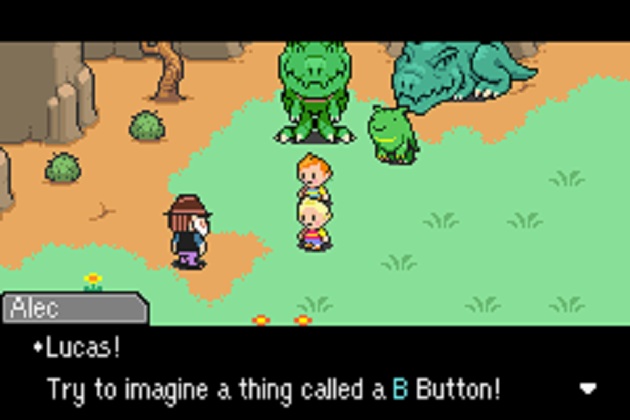Over the past weeks Nintendo has issued a storm of cease and desist letters, shutting down the two largest ROM hosting sites. This push to stop the flow of pirated games has made a dent, at least for a little while. Although it’s highly unlikely the situation will stay that way. There are some ethical uses for ROMs. There are some arguments for the legal creation and use of ROMs in specific circumstances. In the long run, Nintendo’s blanket approach to ROMs may not be particularly impactful.
Ethical and Legal Piracy?
Law makers have established that it is legal to have a digital back up of physically owned games. This cannot in any way defend websites that offer such a large catalogue of digitized retro titles for free. These technicalities will make stopping the distribution of ROMs difficult.
Interpretation of the right to a back up copy is a tricky area. Like many people, I have downloaded and used ROMs from the sites that have now vanished. As an example, Pokémon Snap. it’s a game I own a physical copy of and have re-purchased on the Virtual Console. In this situation, having a digital copy of that game on a computer to play is perfectly legal. However the site distributing it is not. Obtaining a ROM of a game you’ve purchased but is inacsessible because of failing hardware is an ethical use of these sites, even if their distributing the ROM was not.
Nintendo would probably disagree. They have quite a history of blocking people from games for arbitrary reasons, although this has improved recently. Even with their increasingly open policies, a good portion of their virtual console market is becoming frustrated with re-buying the same title on each new console. That service has now been discontinued, and it’s unlikely to return. Removing their most comprehensive attempt to provide a back catalogue of games.
Ethical Game Preservation through ROMs

It’s likely that ROMs will remain the only way to play Mother 3 outside of Japan
Nintendo is currently locking large sections of it’s back catalogue in with an increasingly temperamental supply of hardware. A lot of titles available on ROM sites will likely never make it to a virtual console or classic edition. This could be because of rights issues, defunct developers or just a lack of interest. Without a large investment, ROMs are currently the only way to play many games in Nintendo’s back catalogue. Particularly true of games that saw limited releases or were released at the end of a consoles life cycle. This has made ROMs an important part of game preservation, and further complicates the ethical status of pirated back ups.
If Nintendo seriously wants to combat retro game piracy, it should learn lessons from the battle over music piracy. Streaming services have made music piracy less common, by providing the same ease of access through a legitimate source. The vast majority of people would rather access media through a legitimate means than pirate it. This hopefully also applies to the majority of ROM users, and there is currently no legitimate way to preserve many older games.
The Current Response

Tired unreliable hardware and the current legal alternative to ROMs.
Nintendo currently offers the classic edition consoles, which is a good move to try and earn money from old games. These editions combine something physical that is worth paying for with legitimate ROMs of old games. This gives an ethical way to access the games with something that legitimizes the price, giving much better value than the virtual console. Nintendo seems convinced that this is the only option thats needed for accessing retro titles.
Whenever one of these consoles is announced or discussed, inevitably the comments contain “I already do this with my Raspberry Pi, much cheaper”. These are people who will probably never pay for access to retro games in a digital form. ROM prevalence has been so widespread that the value of the old titles has depreciated. This audience sees no ethical issues with piracy and will never consider actually paying for these titles again, especially at $5 a pop.
Shutting down ROM sites won’t get this audience to stop this sort of behaviour. As with music and film piracy, illegally shared games will probably always exist. Some ROM use is legal, and in the case of video game preservation even some illegal ROM use has it’s ethical benefits. This makes Nintendo’s recent responses an inadequate attempt to fix the problem.
Possible Solutions?

Virtual Console won’t be continuing, removing one of the attempts at selling retro game ROMs.
There is a portion of the ROM using audience that does value ethical use of game software. A legitimate way of accessing retro games needs to be provided for this group. The classic consoles are great, as has been Sony and Microsoft’s smaller entries into offering classic games. But they can’t please everyone with their selection. The unpopular or troublesome titles will probably always have an audience that wants to play them, but lacks a viable way to do so.
Video game developers will have to decide if they have the capacity to properly exploit their back catalogue. If they are not willing to provide a way to access these titles, others will provide access instead. Other creative industries have shown how difficult it is to stop piracy unless you offer an alternative. Attempting to stop sharing of all ROMs will not work, and it ignores the legitimate and ethical uses for these copies. A solution has to be found to access retro titles without paying a small fortune on Ebay. If an ethical way to access old games is not offered, then unethical use of ROMs is going to continue.
Jordan Ashley
Latest posts by Jordan Ashley (see all)
- NPCs Massacre Game Shows Steam Still Isn’t Doing Enough - March 11, 2019
- Anthem Reviews Aren’t Being Censored - February 27, 2019
- Donkey Kong 64: A Marxist Interpretation - February 18, 2019

